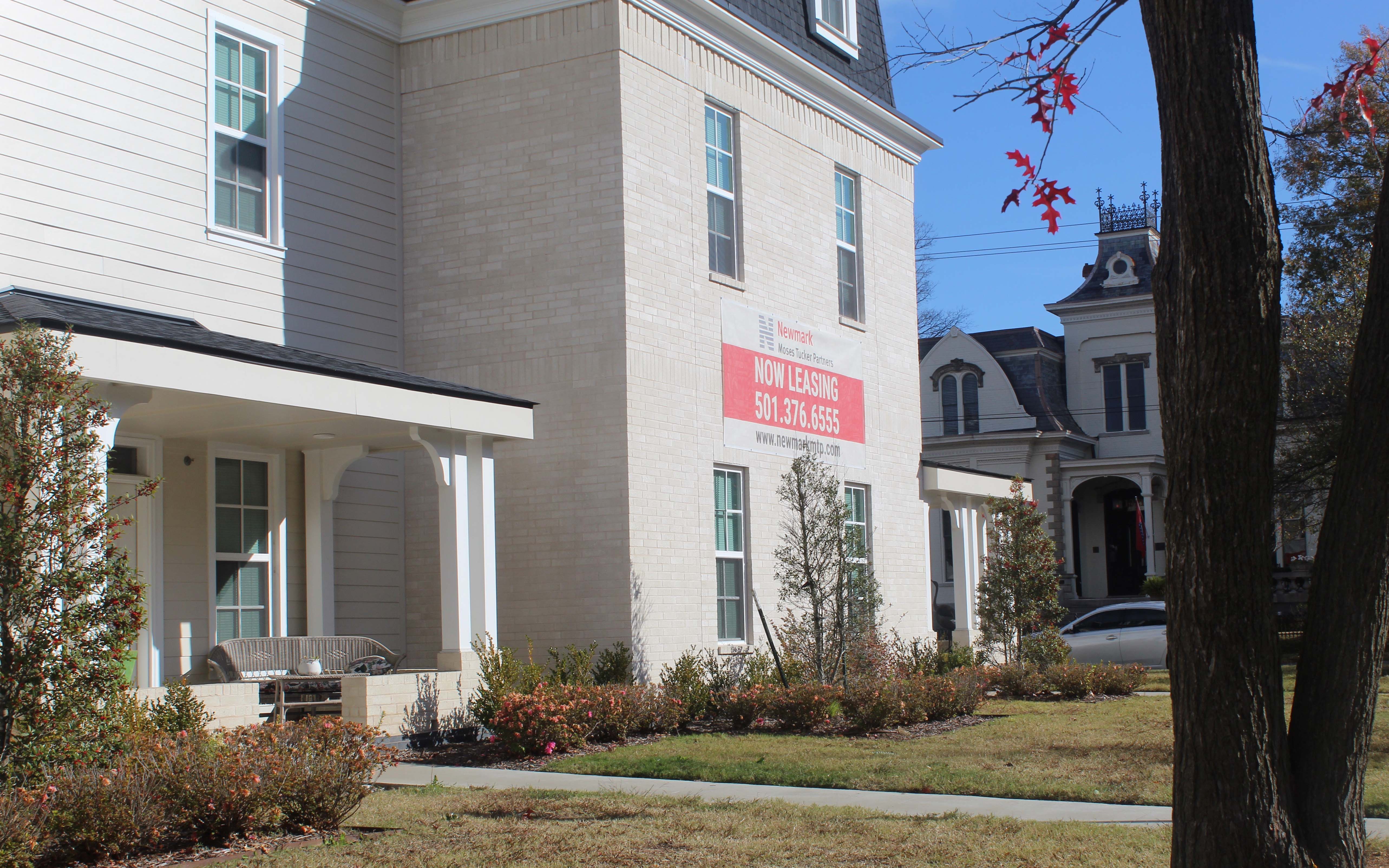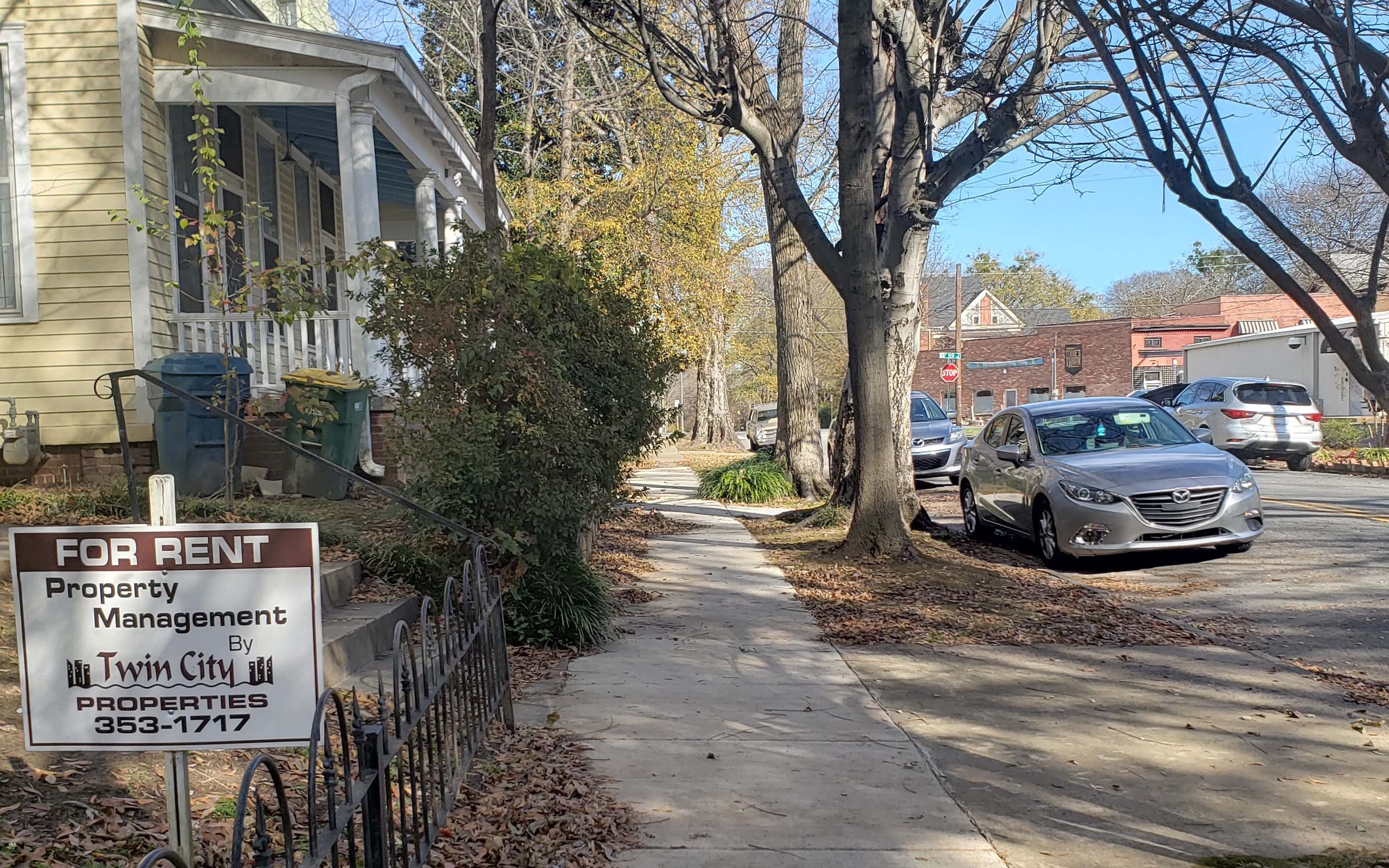As emergency resources wane, housing advocates brace for eviction tidal wave
December 7-13, 2020
By Dwain Hebda
Faced with rising financial uncertainty among tens of thousands of Arkansas renters, housing advocates were upbeat in October with the announcement of $10 million in federal funding being directed via state agencies to help people meet delinquent rent and keep them in their places of residence.
“Our agencies took a pulse as to what was needed in the community,” said Terry Bearden, executive director with Arkansas Community Action Agencies Association. “Many of them developed efforts to pay some rent among other emergency services. But the amounts were not significant. The idea had been hatched that perhaps some of the CARES Act funding that the state had received … might be dedicated towards providing emergency rent assistance.”
Using a combination of Community Development Block Grant funding ($5.76 million) and Coronavirus Relief Funding ($4.24 million), the new program was christened and prepared to launch. Between August and November, a yeoman’s amount of work was done to identify need and distribution channels, craft internal protocols and develop eligibility and application processes including a comprehensive website.
“It was designed to help pay up to 2.5 months of past due rent,” Bearden said. “We named it Arkansas Fresh Start because we hoped that it would give people a fresh start by the start of the new year by taking care of their arrearage.”
Day One for Arkansas Fresh Start was Nov. 9. In less than three weeks, $10 million was all but gone, so great was the cry for help.
“As of [week of Nov. 23], we had exceeded 8,500 applications statewide,” Bearden said. “The agency that serves Central Arkansas from Pulaski County to Lonoke County has suspended taking applications at this time. They believe with the applications that they have, as well as folks who are on the wait list, they’re going to exhaust their funding. And that’s true of several agencies.”
As job loss and hourly cutbacks continue statewide with the pandemic, many people walking the edge of making ends meet are fearful of finding themselves on the street or worse come 2021, in numbers that rival the Great Depression. The run on Arkansas Fresh Start funding not only underscored the growing tidal wave of people who cannot pay their rent, but also hints at what advocates consider a gathering thunderhead on the horizon, bringing with it a downpour of evictions and even incarcerations.
“We have continued to see an increase in evictions over the past few months,” Bearden said. “I really believe that that is going to snowball, and that January is going to be an extremely tough month for many, many families.”
According to July 29 statistics provided by Bearden via Stout.com, an estimated 134,000 renter households in Arkansas reported being unable or likely unable to pay rent and were at risk of eviction. That represents more than 40% of all renter households in the state. And while Bearden noted a national temporary halt in residential evictions exists through Jan. 1, issued by the Centers for Disease Control and Prevention (CDC), she was equally quick to point out such mandates lack sufficient teeth to scare many property owners.
“The CDC moratorium does not have any enforcement language behind it. There’s no agency to whom someone who has been evicted, despite the agency order, can turn,” Bearden said. “It’s really a ‘good face’ kind of order, unfortunately. There’s something in there that [landlords] can be subject to a fine, jail time or both but there’s no one who is actually enforcing that. We just don’t have a national policy or enforcement agency that can take any steps.”
Arkansas renters are at particular risk given the state’s notorious renter laws, which regard rent delinquency as a criminal matter and have resided on the books nearly unchecked since the turn of the 20th Century. Emeritus UA Little Rock law professor Lynn Foster is president of a new housing advocate organization, Arkansans for Stronger Communities, that’s leading the movement to get the laws changed.
“We have no implied warranty of habitability; the legislature has to enact such a warranty. That’s been introduced in the 1970’s and, most recently, in the last four legislative sessions,” she said. “We have a criminal eviction statute. No other state has a statute like that.”
In monthly updates, Foster has no shortage of reports of individuals forced from their domiciles, or in some cases arrested, for being behind on rent for what reformers consider legitimate reasons. Meanwhile, she said, the Arkansas law that are at best unreasonable and at worst unconstitutional.
“As far as the most-used statute, that’s called the Unlawful Detainer statute,” she said. “Again, we’re very unusual in this regard, because the typical response time period for a lawsuit is 30 days. But in Unlawful Detainer, the tenant only gets five days in which to respond. Not only does the tenant have to respond during that time period, but they also have to pay into the court a deposit in the amount of rent that the landlord says is due.
“Let’s look at this in the context of COVID-19. You have a tenant who can’t pay the rent, right? Through no fault of their own, they’ve lost their job, their hours have been cut back, whatever. They’re paying what they can, but they have to pay for other things as well, and they have no money,” Foster continued. “Our statute says that if your landlord sues to evict you, one, you have five days in which to respond. And two, you have to scrape up the rent that you can’t pay, which is why you’re in this situation in the first place, and pay it to the court to even get a hearing.”
The opposing side also claims a bone to pick with the situation, that laws on the books are being selectively enforced or not at all to the detriment of property owners. Little Rock attorney Sylvester Smith, whose practice predominantly represents landlords, said some judges’ propensity to legislate from the bench has stalled the legal process, delaying and even denying his clients receiving their just due under state statutes.
“It used to be, ‘This is what the law says,’” he said. “Jane Doe has five days to respond [to an eviction notice] and, if she fails to respond, the law says that the writ of eviction is filed. The Pulaski County Clerk is the person that’s responsible for issuing that writ. Well, the clerk has decided that that law is unjust. So, she’s not issuing these writs anymore.
“We’re in the process right now where we’ve filed a lawsuit against the Pulaski County Circuit Clerk to try to overturn what she’s done, so that landlords can have the process that they’re accustomed to and have certainty that these things are going to move as swiftly as possible so that they can get their properties back.”
Smith says many of his clients are unfairly labeled the bad actors in these situations, when in fact they rely on renter’s payments for their own living and are justified in seeking satisfaction under the law.
“I want to make this very clear: Landlords are not just throwing people out on the street because they’re a few days late,” he said. “I’m seeing people that are three, four and five months behind. There are situations where people are getting $4,000 per month in unemployment and made the choice not to pay their rent. It’s not as if everybody in this situation is just in a circumstance where they could not afford to pay something.”
“Landlords are hurting just like everybody else. What’s been disheartening to me is that it seems that some of the people who have the ability to make decisions in this process make accommodations and provide considerations for tenants, but they don’t do the same for landlords.”
Thus far, proponents of the law have succeeded in keeping the statute in place, eviction protocols and all, but reformers are not without recent victories. After being made even more punitive in 2001, the statues’ amended language was declared unconstitutional by the Pulaski County Circuit Court in 2015 and was rolled back to its previous language in 2017.
Foster said public sentiment has been shifting as well and with so many people potentially facing the law’s harshest penalties in the opening months of the year – just in time for convening the 93rd General Assembly – she hopes to force change sooner rather than later.
“With every legislative session, there’s been more momentum with this issue,” she said. “Last session, the Citizens First Congress did a survey on Arkansans and found that over 90 percent of Arkansans support the idea of an implied warranty of habitability. Right now, Arkansans for Stronger Communities has something like 20 partner entities and that grows with every session. We just added another partner last week. So, there’s a tremendous amount of public support for this. The public support is only growing.”





